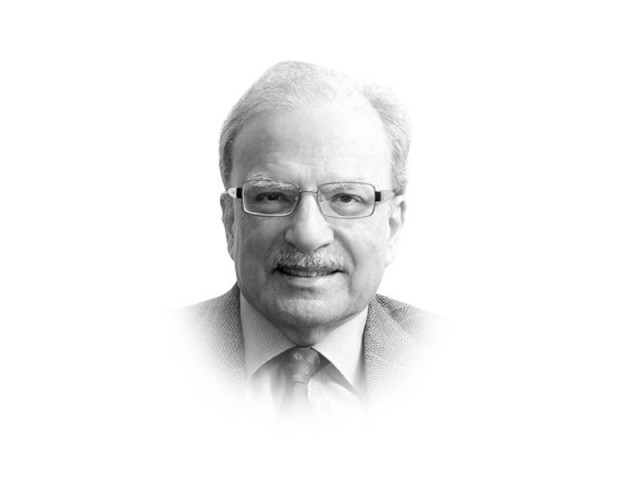Pullback on the global front
This is the subject I will take up next week

The writer is a former caretaker finance minister and served as vice-president at the World Bank
Following the collapse of fascism as a result of the defeat of Germany and Italy in the Second World War and of European Communism after the collapse of the Soviet Union in 1991, a consensus had developed that the world had finally settled to be governed by liberal democracy. This euphoria lasted for about a couple of decades. But in April 2018, the Washington-based think tank the Pew Research Centre released a survey showing that Americans are losing faith in their system of government. Only one-fifth of adults surveyed believe democracy is working ‘very well’ in the country, while two-thirds say ‘significant changes’ are needed to governmental ‘design and structure’.
In her new book, Fascism, Madeline Albright, former US secretary of state, finds worrying parallels between Europe in the inter-war years and today’s world. Then Europe’s problems were aggravated by America’s withdrawal from the global stage. She worries that Donald Trump’s isolationism, protectionism and fondness for dictators are eroding his country’s ability to lead and help solve international challenges, deepening divisions within the West and emboldening antidemocratic forces. Trump’s ‘America first’ approach to dealing with the world outside his county’s borders has resonated in Europe. It has, for instance, encouraged some newcomers to Italy’s political stage to begin the dangerous work of reducing the hold Brussels and the European Union have on the way the country works. If that happens, Italy, the mainland Europe’s third-largest economy, will contribute to the demise of European integration.
Have we in 2018 in Pakistan reached the point at which a political convulsion will interrupt our move towards creating and sustaining durable political systems. We have seen such times before. In 1946-47, a good part of the community of Muslims in British India came to the conclusion that they could not live in a political system that would be inevitably dominated by the large Hindu majority. They sought a separate homeland for themselves and once that was given to them they were not able to manage it well. The resulting political chaos convinced the military under its commander-in-chief, General Ayub Khan, that Pakistan needed a strong state that could be provided by concentrating executive authority in the hands of one person. After having taken over the reins of the government in 1958, he gave the country in 1962 a new Constitution.
The third convulsion came in 1969 when the celebration by Ayub Khan of what his government called the ‘decade of development’ convinced many people that its benefits had accrued to the rich and the powerful. Most unhappy with the system were the people of East Pakistan who sought separation from the country’s West and won it after a bloody civil war. The defeat of the military in 1971 brought civilian politicians back in the arena. Zulfikar Ali Bhutto took over the government from the military and wrote yet another constitution which brought parliamentary democracy. But Bhutto wanted all the power in his hands and he tried to get it by allegedly rigging the elections of 1977. His hope was that with a large majority in the National Assembly, he would be able to change the political order in favour of a presidential form. But the street was not on his side and the result was the return of the military in 1977 that ruled for another period of 11 years. This was the fourth convulsion.
General Ziaul Haq’s death in an air crash brought an end to the military rule. This was followed by 11 years of political chaos, not much different from the one that persuaded Ayub Khan to establish the first of the four military governments in the country’s history. The military was back in power, this time under General Pervez Musharraf. In a conversation with the president in 2007 before he brought trouble for his rule by dismissing the Chief Justice of Pakistan, I mentioned that for some reason Pakistan had followed 11-year political cycles. I found that interesting and said that by this count he had four more years to go. But his move against the judiciary brought the street back into play. The massive demonstrations organised by the legal community brought Musharraf down and democracy returned in 2008. For the last 10 years, Pakistan has been engaged in the process of establishing a political order. Would this trend continue?
The trend would continue if three things happen. Pakistan establishes clear boundaries separating the various sources of power: the legislature, the judiciary and the military. The country devises a way of dealing with diversity and size. And, it finds a way of bringing those in the country who have not accepted the current system as the most appropriate form of governance under which the population is prepared to live. Of these the country’s size is by far the most important. This is the subject I will take up next week.
Published in The Express Tribune, June 4th, 2018.
Like Opinion & Editorial on Facebook, follow @ETOpEd on Twitter to receive all updates on all our daily pieces.















COMMENTS
Comments are moderated and generally will be posted if they are on-topic and not abusive.
For more information, please see our Comments FAQ